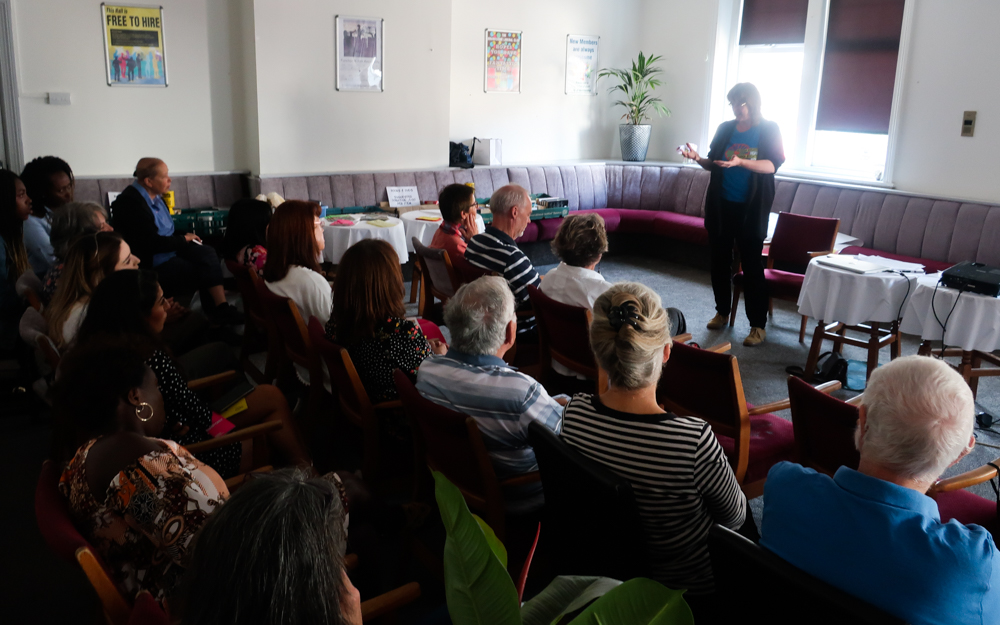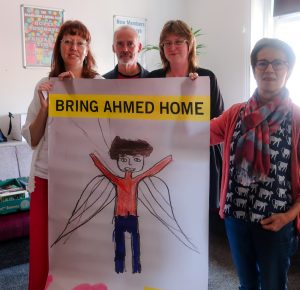There has been much happening in South America this month, hence a slightly longer than usual newsletter. There is good news regarding international support for Venezuelan refugees and migrants, however, there are troubling reports of human rights abuses in Chile, Ecuador and Bolivia in response to protests. Court action to secure LGBTI rights in Paraguay is reported in addition to the political situation in Argentina. There are concerning reports, including information about killings in Brazil and Colombia, together with news of attacks on political parties in Colombia.
There are urgent actions regarding Chile, Colombia and Bolivia and petitions concerning Colombia and Brazil.
COLOMBIA
The Colombian press reports the killing by dissident FARC guerrillas of five people of the Nasa indigenous community in Cauca Department. They were killed when they tried to stop a FARC column from crossing their territory. Four were unarmed ‘Indigenous Guards’ and the fifth was the local Governor. 14 Nasa people have been killed so far this year. The UN’s Special Rapporteur stated ‘This is not an isolated event. The communities and indigenous peoples of Cauca are suffering incessant and unacceptable violence. The situation is worsening despite the repeated calls to address it. We urge the Government to take urgent measures, within the framework of compliance with the Peace Agreements, to end these deadly attacks.’
Amnesty has issued an Urgent Action on behalf of Human Rights Defender Luz Marina Arteaga, who has received death threats and has been denied protection from the National Protection Unit. You can take action here. Please send a copy to Sr. Antonio José Ardila, Colombian Ambassador to the United Kingdom, 3 Hans Crescent, London SW1X 0LN.
The UK NGO Justice for Colombia has denounced the simultaneous attacks on three political parties in the run up to regional elections in Colombia: ‘These attacks are a clear attempt to intimidate and threaten political candidates, activists and members of left-wing parties in Colombia and insinuate a return to the most extreme periods of paramilitary violence.’
In these regional elections, Claudia López became the first woman and first gay woman to be elected Mayor of Bogotá. Latin America Despatch adds, ‘A member of the Green Alliance party, López has prioritized fighting corruption, ending child labour, putting more police officers on the streets and improving educational opportunities for adults over the age of 45.’
CHILE
Since 18 October, thousands have taken to the streets in Chile in response to a metro fare hike in the capital, Santiago. The demonstrations have broadened to reflect people’s anger over living costs and inequality. The President decreed a state of emergency, enabling the army to police demonstrations and impose a curfew.
The Chilean government has reported that, so far, 18 people have died in the context of the demonstrations, the state of emergency and the curfew. According to the National Human Rights Institute (INDH), five of these fatalities were at the hands of the security forces. The INDH has also reported that some 2,600 people have been detained and 584 injured, 245 of them by firearms, among other serious human rights violations.
Amnesty has deployed its Americas Crisis Response team to the country after receiving hundreds of complaints about serious human rights violations that range from excessive use of force to torture, illegal raids and arbitrary detention. The team will gather testimonies and examine documents to corroborate these complaints and possible crimes under international law in order to support the victims and demand that the state guarantee their rights to justice, truth, reparation and non-repetition. Amnesty has urged the government to listen to the population’s grievances and take practical measures in response.
Please support this Urgent Action with a message to the Chilean President. [Read more…]


 Ulrike Schmidt gave us an excellent talk on human rights infringements in Europe. Ulrike is the Amnesty county coordinator for Bulgaria, Czech Republic, Slovakia, Hungary, Poland and Romania. Ulrike is a teacher and a human rights activist based in London. Originally from Germany, she has worked with Amnesty International for many years on various local and international campaigns.
Ulrike Schmidt gave us an excellent talk on human rights infringements in Europe. Ulrike is the Amnesty county coordinator for Bulgaria, Czech Republic, Slovakia, Hungary, Poland and Romania. Ulrike is a teacher and a human rights activist based in London. Originally from Germany, she has worked with Amnesty International for many years on various local and international campaigns.